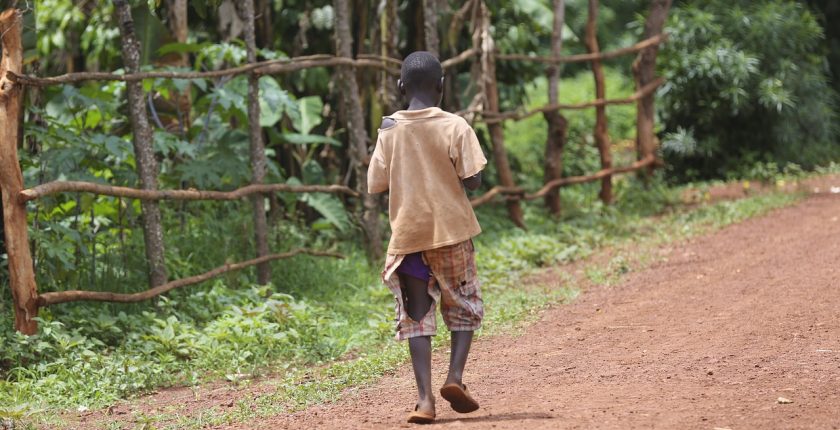Will we be able to end world hunger? – The challenges SDG2 faced before Covid-19
Slipping out of reach – zero hunger and Sustainable Development Goal 2
Under the current global landscape, it is easy to blame worsening development situations on Covid-19. However, the UN’s goal to end world hunger under its Sustainable Development Goal 2 has been slipping out of reach since 2015. The current risk then for development practitioners and policymakers is overlooking the ‘original’ challenges in order to control the effects of the pandemic. Although the importance of addressing the consequences of Covid-19 is universally supported, the underlying reasons for World hunger still need to remain a global responsibility.
The UN Sustainable Development Goal 2 (SDG2) was born, along with 16 other SDG’s, out of the UN Conference on Sustainable Development in Rio de Janeiro 2012. The aim of SDG2 was to achieve zero hunger through sustainable means by 2030. Since its conception, SDG2 initially achieved moderate success, yet since 2015 this has slowly reversed with world hunger steadily increasing. In 2015 the UN recorded that 784 million people were living within adequate access to nutrition, today this has risen to over 820 million, effectively meaning that ‘One in nine people do not get enough food to be healthy and lead an active life’ (UN, 2020)
Climate change, world hunger and what’s being done.
One of the many complex factors that have contributed to the picture is the impacts of climate change. Climate change is cited as being among the leading causes of hunger according to the UN’s Food and Agriculture Organisation Report 2018. Since 1990 the number of extreme weather events such as extreme heat, droughts, storms have doubled totalling an average of 213 events a year. The challenges this poses to already delicate and insecure food production disproportionately affects the world’s poor by destroying land, livestock, crops and food distribution.
Initiatives to focus on climate change and thereby mitigate its effects on food security necessitates a global and combined response which recognising the link between the climate and hunger. INGO’s have been addressing climate change through various means, recognising its impact on numerous development issues. The World Food Project, for example, has provided analysis highlighting the links between food security and climate change risks, thereby helping identify which parts of the world are most at risk. Additionally, The World Bank, being the largest funder of climate investments in developing countries, has committed $21.4 billion to climate-related investments.
Covid-19 and a need to respond.
Unfortunately, Covid-19 complicates the issue, its effects depend on the economic fallout. Under current circumstance food output is not predicted to fall, however, it is people’s economic capacity to purchase food which is of concern. Although the newness of the current situation means Covid-19s effect is hard to predict, the 2020 “State of Food Security and Nutrition in the World” report suggests that economic instability could add 83 million people to the current population of people affected by hunger.
In response to the increase in world hunger, it is important to conjoin and intensify efforts to ensure people have access to the basic nutrition they need to lead healthy and productive lives. Eradicated hunger can and will benefit all of society if it can be achieved. As stated in a joint report by the heads of the UN Food and Agriculture Organization (FAO), the International Fund for Agricultural Development (IFAD), the UN Children’s Fund (UNICEF), the World Food Programme (WFP) and the World Health Organization (WHO) ;
“Our actions to tackle these troubling trends will have to be bolder, not only in scale but also in terms of multisectoral collaboration,”
References
UN (2020) Background on Goals. https://www.undp.org/content/undp/en/home/sustainable-development-goals/background.html
UN News (15th July 2019) Over 820 million people suffering from hunger; new UN report reveals stubborn realities of ‘immense’ global challenge https://news.un.org/en/story/2019/07/1042411
UN Climate Change (18th Sept 2018) UN Warns Climate Change Is Driving Global Hunger https://unfccc.int/news/un-warns-climate-change-is-driving-global-hunger
FAO, IFAD, UNICEF, WFP and WHO. 2020. The State of Food Security and Nutrition in the World 2020. Transforming food systems for affordable healthy diets. Rome, FAO. http://www.fao.org/3/ca9692en/CA9692EN.pdf
Welsh, T. (12th October 2020) SDG 2 is ‘slipping away,’ global hunger index shows
The World Bank (2020) Climate Change https://www.worldbank.org/en/topic/climatechange/overview#3
UN (2020) Goal 2: Zero Hunger https://www.un.org/sustainabledevelopment/hunger/
Welsh, T. (12th October 2020) SDG 2 is ‘slipping away,’ global hunger index shows
UN (2020) Peace, dignity and equality on a healthy planet https://www.un.org/en/sections/issues-depth/food/index.html
UN World Food Program (2020) Climate Action https://www.wfp.org/climate-action
FAO, IFAD, UNICEF, WFP and WHO. 2020. The State of Food Security and Nutrition in the World 2020. Transforming food systems for affordable healthy diets. Rome, FAO. http://www.fao.org/3/ca9692en/CA9692EN.pdf

